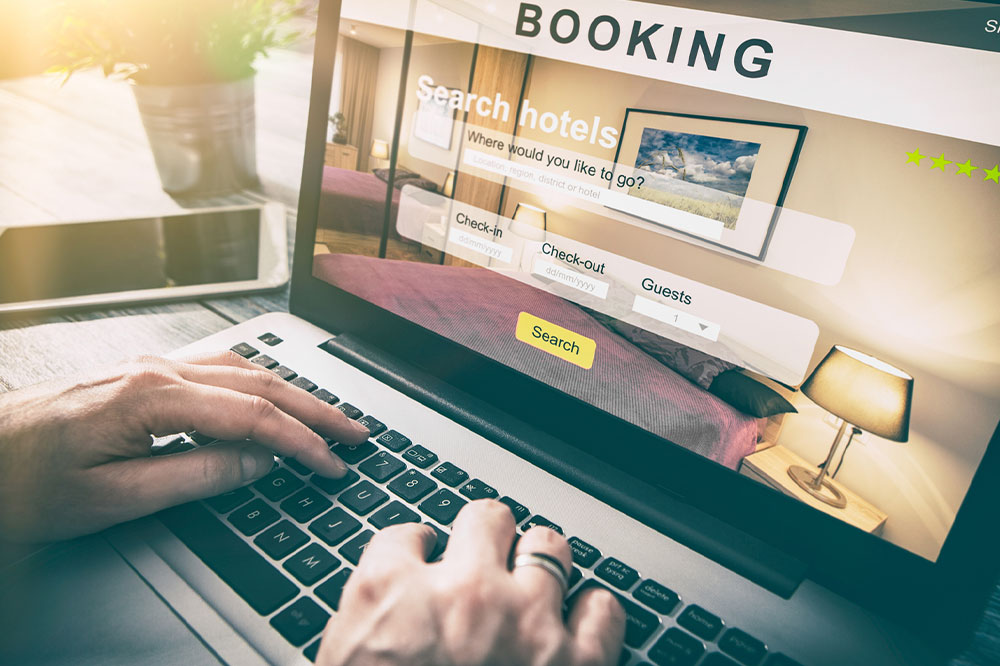6 Mistakes to Avoid While Booking a Hotel Stay

When planning a trip, one of the main factors to consider is accommodation. Be it domestic or international travel, you simply cannot skip booking a stay, even for short trips. With dozens of websites offering this facility online, the task may seem straightforward. Yet, people make a lot of errors while looking up hotels and making reservations. So, here are some hotel booking mistakes to avoid on your next trip:
Choosing the wrong location
Booking a hotel can be easy, but when you are considering a chain of hotels, there is a good chance of booking a stay at the wrong location. Big hotels may have multiple properties in major cities. So, looking up the hotel name and zeroing in on the cheapest room might not be enough. You should always crosscheck the location using the area code or a known nearby landmark. If you are driving, book a hotel with adequate parking. City hotels can be short on space and don’t offer onsite parking, so ensure your booking has this amenity. Also, choosing a lackluster location outside of the city to save money will cost you more traveling back and forth to accommodate sightseeing. Instead, pick a central location with malls, museums, restaurants, bars, and fun activities to explore around the hotel.
Not comparing hotels
Choosing the cheapest listing does not guarantee a good stay. You must check out all the amenities provided at the property. For example, your stay may come with a complimentary breakfast, free internet, gym access, and pool access, among other amenities. You need to check and confirm these facilities are included in the booking price. If not, you should ask about the charges for these services. Unless you book a premium suite, features like king size bed, refrigerator, and 24/7 food and beverage services are not a given. Some hotels allow you to bring pets, so look up pet-friendly discount hotels. Compare all deals available online to see everything you can get at the price. Top booking websites even offer filter options so you can select and compare rates and amenities simultaneously.
Overlooking rewards programs
If you travel often, then signing up for a loyalty program or rewards program can prove to be quite beneficial. By overlooking hotel rewards, you can miss out on a lot of deals and additional amenities. For example, the Marriot Bonvoy membership offers a free night stay perk where you pay for 4 nights but can stay 5 nights after redeeming this option. This feature is also available for Hilton Elite members under the Hilton Honors membership. There are several points and cash-in options that you can get with loyalty programs. Marriot Bonvoy also lets you redeem 3,500 points or as little as $55 for your next booking without waiting to cross a higher threshold. Hilton Honors, World of Hyatt, and IHG One rewards programs also feature a lower threshold for redeemable points.
Ignoring the fine print
Overlooking the terms and conditions and hotel policies is how most travelers find themselves in unprecedented situations. Every hotel will have a different policy for guests. Not reviewing the check-in and check-out rules and cancellation policy is a critical mistake. The cancellation and refund policy spells out the deadline for canceling your booking and if it will be refunded. In case you have to cancel the booking later, you might not get a refund if it is not a part of the hotel policy. Even if you are a frequent traveler holding membership or loyalty cards, you may not be able to claim refunds due to booking errors. So, spend a few minutes reading all the terms carefully before you book a stay. This is a crucial step, especially when you are booking a nonrefundable room to save money.
Booking a stay during the peak season
Getting a room can be extremely expensive during holidays and long weekends. Hotels make a lot of money by increasing room prices during this period. The hike is also triggered by excessive tourist influx and limited availability of rooms. Those who can travel halfway around the world to visit a popular destination will be willing to pay a lot of money to get a good room during the peak tourist season. This automatically drives up room prices, even at hotels that do not sponsor theme park activities. For example, if you are planning a trip to Orlando, you should book a stay between September and early October when the holidays haven’t begun. Orlando has several theme park attractions intended for children and travelers across the globe. Here, rooms will be cheaper in the off-season. The same applies to casinos in Atlantic City and Las Vegas. Encore Hotel is a popular pick for accommodations in Las Vegas, and its suites sell out quickly during the peak season. The best time to book Las Vegas hotels would be between the months of February and May when the weather is ideal, that is, if you don’t mind expensive stays. Alternatively, you can try booking a room during the off-season, as tourists generally avoid the hot climate and weather, making this the perfect opportunity to get affordable accommodation.
Not checking hotel reviews
Reviews will tell you everything that hotel managers and staff would not. Fellow travelers who post honest reviews of their stay are doing you a big favor by revealing what to expect during your stay. Even some of the best hotel chains and luxurious establishments can fall short of providing excellent services and amenities. When you are paying a lot of money for your stay, it is natural to expect top-notch service. So, spend some time reading reviews on websites like Booking.com or TripAdvisor. You can even check out travel vlogs where guests record and post about their experiences. Guests may even provide a checklist that you can use to make the most of your travel itinerary.


